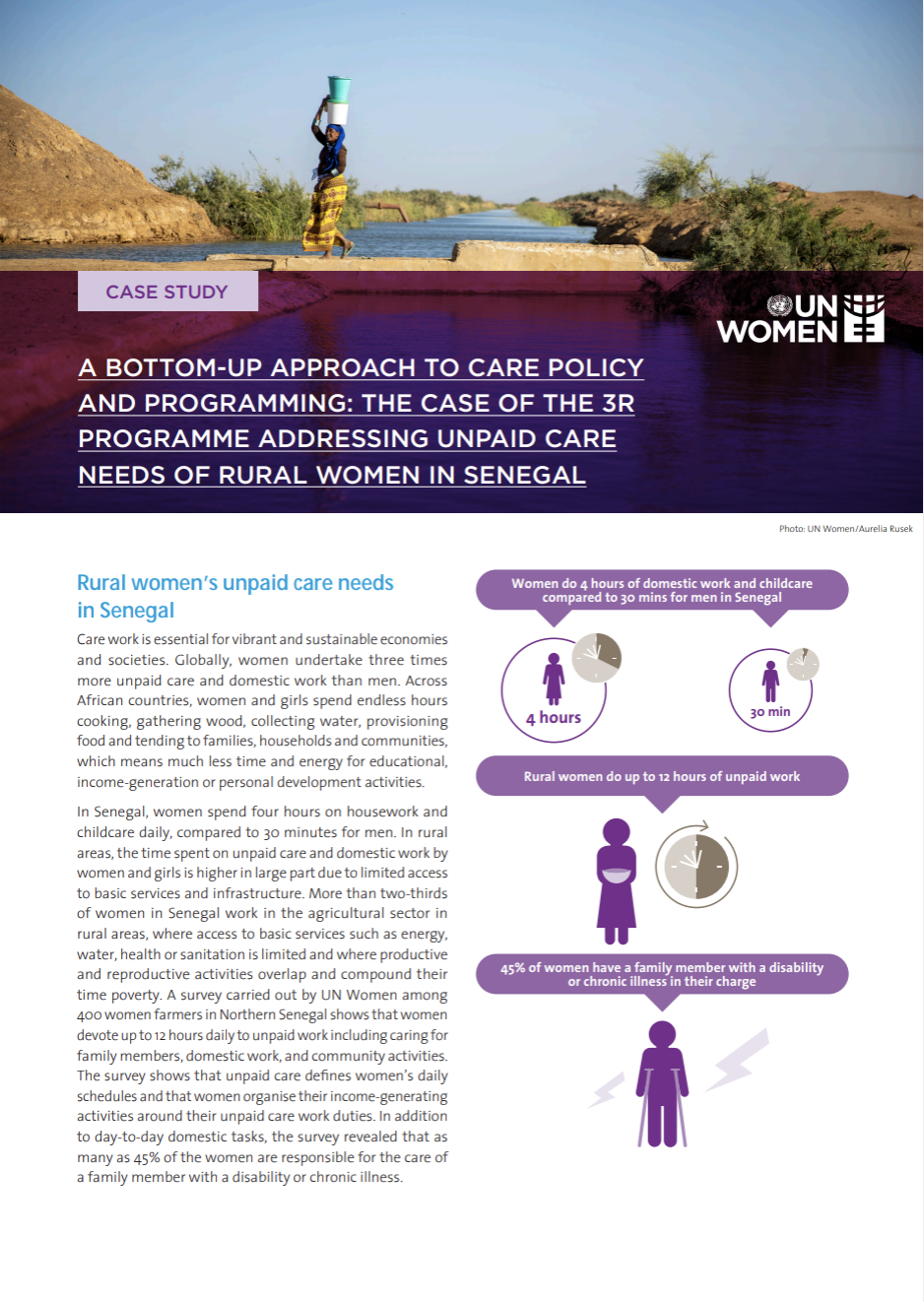
A BOTTOM-UP APPROACH TO CARE POLICY AND PROGRAMMING: THE CASE OF THE 3R PROGRAMME ADDRESSING UNPAID CARE NEEDS OF RURAL WOMEN IN SENEGAL.

In Senegal, women devote daily, on average, 4 hours and 9 minutes to housework and childcare, compared to 30 minutes for men. More than two-thirds of working Senegalese women are concentrated in the agricultural sector in rural regions, where access to regular basic services such as energy, water, and sanitation is limited and where productive and reproductive activities overlap and compound women’s time poverty. Policies and programmes that provide services, social protection, and basic infrastructure, promote sharing of domestic and care work between men and women, and create more paid jobs in the care economy, can accelerate women’s economic empowerment in Senegal. UN Women is implementing the programme “Transformative Approaches to Recognize, Reduce and Redistribute Work unpaid care work in women's economic empowerment (3R Programme)”. The programme has focused on: research to identify unpaid care needs of women in rural areas; integrating unpaid care solutions in local investment plans; adapting and scaling up health insurance solutions through policy dialogue with the National Health Insurance Agency and the private sector; and using these experiences to facilitate evidence-based care policy dialogues at national and regional levels. This case study outlines solutions to rural women’s unpaid care needs and discusses the experience, results and possible way forward of the 3R programme.